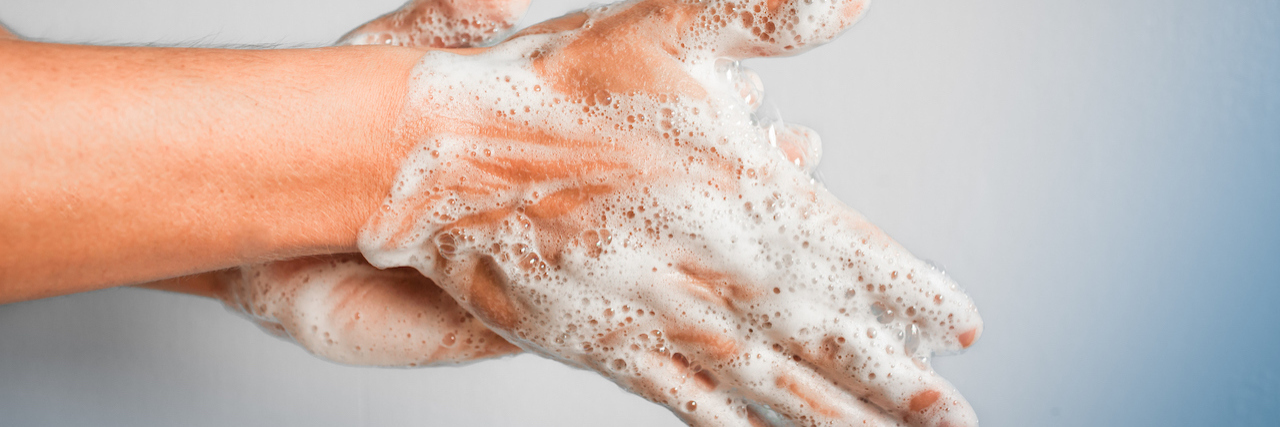A Doctor Shares What You Should Do to Prevent COVID-19 If You Have a Chronic Illness
On Feb. 29, I wrote an article, “Coronavirus and Chronic Illness: What You Need To Know,” about coronavirus (COVID-19) basics and precautions as it relates to patients with dysautonomia and chronic illness in general. At that time there were only three cases of COVID-19 in the United States, but today we have more than 700 confirmed cases, and the number is rising; at least 26 patients died from COVID-19 in the United States.
If you feel your anxiety rising while reading the statistics or watching the news, know that you are not alone and that your concerns are valid. Recently, infectious disease experts in the country recommended special precautions for people over 60 years of age and those with underlying health problems, such as heart or lung disease, diabetes or immunodeficiency.
While many dysautonomia patients do not fall into these categories, having a chronic condition that affects the heart rate, blood pressure, digestion and temperature regulation could be considered an added risk to how an individual may be affected by an infection. Additionally, patients with autoimmune disorders may have altered immunologic response to an infection from the underlying autoimmunity, immunosuppressive therapy or both, which can result in a higher risk of complications and possibly a more difficult disease course.
There is no data on how COVID-19 affects individuals with autoimmune and/or autonomic disorders, but we can hypothesize how they would respond to COVID-19 based on their response to the flu. My personal opinion is that patients with these disorders should be viewed as a high-risk population even if the Centers for Disease Control and Prevention (CDC) and other organizations may not specifically identify them as such.
To err on the safe side, I think it might be wise for patients with autoimmune and/or autonomic disorders to follow the CDC guidelines and infectious disease expert advice that’s applicable to people with underlying health problems or those over age 60. These recommendations are as following:
- Try to avoid all activities that involve large crowds, such as concerts, conferences, large meetings, shopping malls, religious services and movie theaters.
- Avoid all travel, especially by plane, both domestically and internationally.
- If possible, work from home or attend school from home in order to avoid exposure to work areas and classes with many people.
- Make sure you have enough medications that you take daily to last you a few weeks in order to avoid trips to the pharmacy.
- Make sure you have enough food supply to last you a few weeks in order to avoid trips to the grocery store or restaurants.
- Wash your hands with soap and water for at least 20 seconds thoroughly. If soap and water are not readily available, use an alcohol-based hand sanitizer with at least 60% alcohol. If a hand sanitizer is not available at your local stores for purchase, you can make your own! (See this Mighty article for easy recipes.)
- Avoid touching your face. If you have itchy or dry skin, use a moisturizer or anti-histamines to decrease itching.
- If at all possible, people living with you in the same household should also follow these recommendations to decrease their chance of getting infected and passing it on to you.
- While face masks are not recommended by the CDC for prevention of COVID-19, you can certainly wear one if you have one and want to wear it, or if you wear one anyway due to mast cell activation syndrome or another condition.
- Now is the time to discuss with your doctor how you can contact them if you are having a flare-up of dysautonomia, or if you are sick with fever and cough. Your doctor may want you to stay home and not come to their clinic in order to avoid spreading any infection, whether cold, flu or COVID-19. Getting instructions from your doctor by phone, e-mail or video would be ideal in order to avoid the unnecessary trips to the doctor’s office, urgent care or emergency room.
Since the number of COVID-19 cases in the U.S. is expected to rise in the next few weeks, according to the infectious disease experts, being cautious if you have a chronic medical condition is not only advisable, it is necessary to help decrease your chances of getting an infection. The single most important step you can take to avoid getting sick is to reduce face-to-face contact with people by staying home as much as possible over the next few weeks.
While there is no need to panic, taking precautions to protect oneself based on medical facts is warranted, and being proactive can alleviate some of the anxiety associated with the COVID-19 epidemic.
Concerned about coronavirus? Stay safe using the tips from these articles:
- Which Face Masks Prevent Against Coronavirus?
- How to Make Your Own Hand Sanitizer
- 8 Soaps You Can Use to Help Prevent the Spread of Illness
- 10 Face Masks People With Chronic Illness Recommend
A version of this article originally appeared on Dysautonomia Clinic’s website.
Header image via kieferpix/Getty Images

